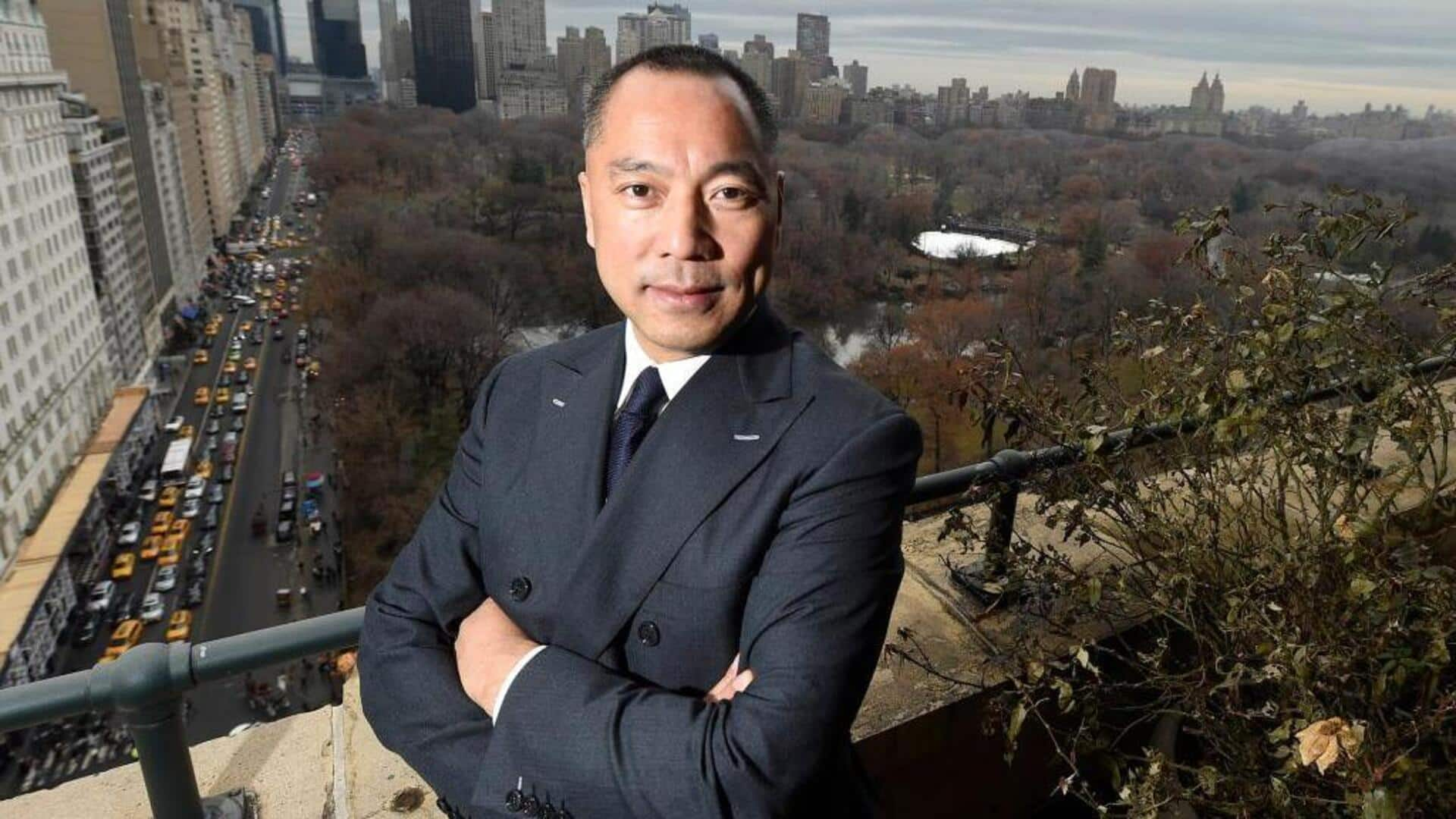
US: Chinese businessman Guo Wengui convicted in $1B fraud scheme
What's the story
Chinese business magnate Guo Wengui, also known as Miles Kwok, was found guilty by a US jury on Tuesday for defrauding his followers in a $1 billion scheme. The self-exiled tycoon, once among China's wealthiest men, was arrested in New York in March 2023. He stood accused of running a racketeering enterprise from 2018 to 2023, that tricked thousands into investing in fraudulent ventures.
Outcome
Guo found guilty on 9 criminal counts
Guo's trial spanned seven weeks, resulting in him being found guilty on nine of 12 criminal counts, which included fraud and racketeering conspiracy. The charges were primarily based on allegations that he used the funds from these fraudulent investments to sustain his opulent lifestyle. Despite the conviction, Guo's lawyers claimed that prosecutors had not proven he had cheated anyone.
Alliance
Exile and relationship with Steve Bannon
Guo left China in 2014, during an anti-corruption crackdown that targeted his associates. He sought political asylum in the US after Chinese authorities accused him of crimes including rape, kidnapping, and bribery. While living in a luxury apartment overlooking Central Park, Guo formed a close alliance with Donald Trump's former political strategist, Steve Bannon. In 2020, they announced a joint initiative to overthrow the Chinese government.
Fraud
Guo's fraudulent ventures and upcoming sentencing
Prosecutors revealed that Guo persuaded thousands of people to invest over $1 billion in entities he controlled, including GTV Media Group, Himalaya Farm Alliance, and Himalaya Exchange. Assistant US Attorney Ryan Finkel stated that Guo "spouted devious lies to trick his followers into giving him money." He cited numerous broadcasts where Guo assured investors they wouldn't lose money if they invested with him. Guo faces up to 20 years in prison, and is set to be sentenced on November 19.
Trial details
Trial witnesses and defense arguments
The trial drew significant attention, featuring testimonies from investors, luxury car dealers, and a managing director at Hayman Capital Management, where Guo invested $100 million of the stolen funds. Notably, neither Bannon nor Hayman Capital Management were accused of any wrongdoing in the case. The defense argued that Guo's extravagant lifestyle was a form of protest against the Communist Party, and urged jurors not to let it cloud their judgment.